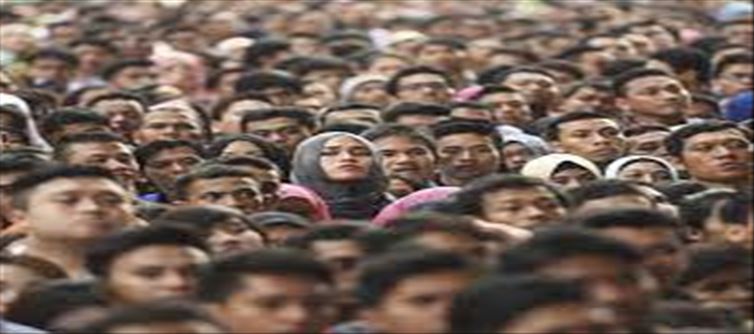
According to this week's budget announcements, india aims to create 60 lakh jobs in the next 5 years. In this current situation, it seems very difficult. The country’s unemployment rate is higher than emerging economies in recent years. A group of students at a college in meerut, Uttar Pradesh, in the mid-2000s jokingly described themselves as 'A Generation without opportunities for Progress'. Tired of years of fruitless efforts to get government jobs, they said they were stuck between their rural homes and the dream of relocating to urban areas.
Unemployment has left them helpless and abandoned. Over the past two weeks, the media has been focusing on the "unemployed youth" in india as the extent of India's employment crisis has become more apparent. People's attention has also turned to it. Millions of highly educated but unqualified young people are challenging the notion that Asia benefits from a large youth population. The problem of unemployment, which became apparent in the mid-2000s, has increased significantly since then.
 As concerns over unemployment intensify, media coverage inevitably oscillates between loud demonstrations and campaign speeches by politicians. But if we change our perspective and reject the stereotype that unemployed youth are dangerous to society, what are young people really doing on a daily basis in India? How do they spend their time? How do they interact with their communities? How do they change India? For the past 25 years, we have been researching the experiences and activities of unemployed youth between the ages of 18 and 35 in the states of Uttar Pradesh and Uttarakhand. The research was conducted in the meerut district of Uttar Pradesh and in the Chamoli district of Uttarakhand, living and working with unemployed youth for many years.
As concerns over unemployment intensify, media coverage inevitably oscillates between loud demonstrations and campaign speeches by politicians. But if we change our perspective and reject the stereotype that unemployed youth are dangerous to society, what are young people really doing on a daily basis in India? How do they spend their time? How do they interact with their communities? How do they change India? For the past 25 years, we have been researching the experiences and activities of unemployed youth between the ages of 18 and 35 in the states of Uttar Pradesh and Uttarakhand. The research was conducted in the meerut district of Uttar Pradesh and in the Chamoli district of Uttarakhand, living and working with unemployed youth for many years. The depth of social misery is astonishing. Unemployed youth face disappointments. They have no money, cannot meet family expectations, often lack respect, and often face difficulties in managing their married life. If there is no permanent job for men, they lose the reputation of being the family’s money-making individuals. As well as the time spent studying and wandering for employment, they are obsessed. Work is also related to citizenship. Many young people in their teens and early twenties dream of serving the nation by getting jobs in government service. But getting government jobs has become unacceptably difficult.It is little wonder that much unemployed youth, especially men, have become cynical and isolated, describing themselves as "doing nothing" or engaging only in entertainment. There seems to be a generation everywhere that has no opportunities for progress. Young people are often entrepreneurs on a daily basis. They find alternative employment that does not require them to utilize all of their skills, but that may create better employment in the future. The amount of social service rendered by unemployed and under-qualified youth is significant. This section of the society has become the mainstay of the general society of India.
The depth of social misery is astonishing. Unemployed youth face disappointments. They have no money, cannot meet family expectations, often lack respect, and often face difficulties in managing their married life. If there is no permanent job for men, they lose the reputation of being the family’s money-making individuals. As well as the time spent studying and wandering for employment, they are obsessed. Work is also related to citizenship. Many young people in their teens and early twenties dream of serving the nation by getting jobs in government service. But getting government jobs has become unacceptably difficult.It is little wonder that much unemployed youth, especially men, have become cynical and isolated, describing themselves as "doing nothing" or engaging only in entertainment. There seems to be a generation everywhere that has no opportunities for progress. Young people are often entrepreneurs on a daily basis. They find alternative employment that does not require them to utilize all of their skills, but that may create better employment in the future. The amount of social service rendered by unemployed and under-qualified youth is significant. This section of the society has become the mainstay of the general society of India.



 click and follow Indiaherald WhatsApp channel
click and follow Indiaherald WhatsApp channel